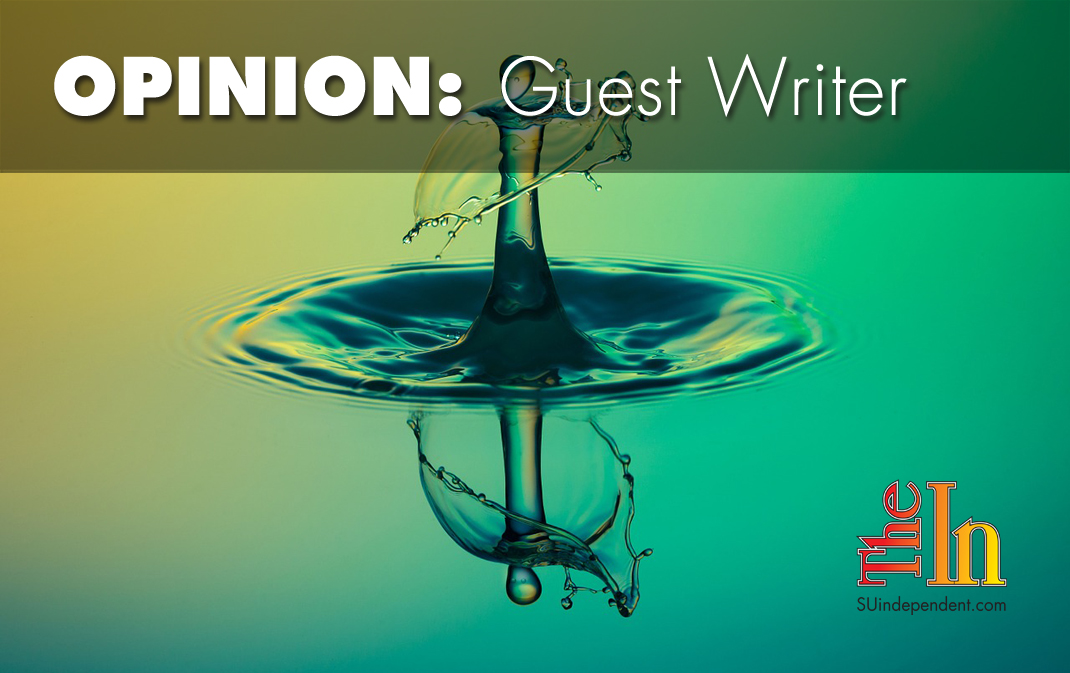
Conserve Southwest Utah opposes property tax increase for Water Conservancy District
By Tom Butine
Conserve Southwest Utah encourages citizens to attend the public hearing Dec. 5 at 6 p.m. at the Washington County Water Conservancy District building at 533 E. Waterworks Dr. in St. George to educate themselves on a proposal to raise next year’s property tax. CSU opposes the basic concept of a property tax to supplement the price charged for water delivery since these taxes hide the true cost of water and make it difficult for individual homeowners to reap the full benefit of their investments in efficiency. This approach also compounds the problem of housing affordability.
In 2015, 69 cents of every dollar paid to the water conservancy district came from individual property taxes and new home impact fees paid by homebuilders. Most of us in St. George and Washington County recognize the value of using our water wisely and understand that the free market is an important tool to bring supply and demand into balance. But when more than 2/3 of our water dollars are divorced from the amount of water we use, we lose a powerful incentive and means of financial reward for investments in efficiency. These mechanisms are anti-conservation. On top of that, this has the flavor of a regressive tax, hitting lower- and fixed-income families much harder than higher-income families. It’s a bad idea.
“Even the opportunity to use new construction impact fees as a means to address wise and efficient water use are being wasted,” said Patrick Barickman of CSU’s Water Works team. “Imagine if there was a reduction in impact fees that could be passed along to the homebuyer when waterwise landscaping was part of a new home design. There are certainly ways to both decrease the property tax burden and increase home affordability by taking another look at how we are asked to pay for water.”
“We have heard that this tax increase is targeted to help pay for the Lake Powell Pipeline,” said Lisa Rutherford, a CSU board member. “If so, that is another reason to oppose it: We should not be funding such a risky and unnecessary project that has so many unresolved issues. Furthermore, the vast majority of water districts in the country do not collect property taxes for water, proving it is unnecessary for sound fiscal management.”
CSU argues that there is a better way to structure water finances. The results of the current system are not in the best interests of businesses, homeowners, and community:
—They penalize individuals who want to make individual investments in efficiency.
—They disadvantage lower- and fixed-income homeowners.
—They collect high impact fees on new construction and miss the opportunity to structure those fees to design low water use in the future.
—They add to the problem of home affordability through increased property taxes.
We should be phasing out the property tax line item for water, not adding to it.
Tom Butine is president of Conserve Southwest Utah.
The viewpoints expressed above are those of the author and do not necessarily reflect those of The Independent.
How to submit an article, guest opinion piece, or letter to the editor to The Independent
Do you have something to say? Want your voice to be heard by thousands of readers? Send The Independent your letter to the editor or guest opinion piece. All submissions will be considered for publication by our editorial staff. If your letter or editorial is accepted, it will run on suindependent.com, and we’ll promote it through all of our social media channels. We may even decide to include it in our monthly print edition. Just follow our simple submission guidelines and make your voice heard:
—Submissions should be between 300 and 1,500 words.
—Submissions must be sent to editor@infowest.com as a .doc, .docx, .txt, or .rtf file.
—The subject line of the email containing your submission should read “Letter to the editor.”
—Attach your name to both the email and the document file (we don’t run anonymous letters).
—If you have a photo or image you’d like us to use and it’s in .jpg format, at least 1200 X 754 pixels large, and your intellectual property (you own the copyright), feel free to attach it as well, though we reserve the right to choose a different image.
—If you are on Twitter and would like a shout-out when your piece or letter is published, include that in your correspondence and we’ll give you a mention at the time of publication.
Articles related to “Conserve Southwest Utah opposes property tax increase for Water Conservancy District”
Letter to the Editor: Citizens’ Climate Lobby encourages ethical tragedy
PacifiCorp and Rocky Mountain Power miss renewable energy opportunities
Some things — like pipelines — never seem to go away, but they should



